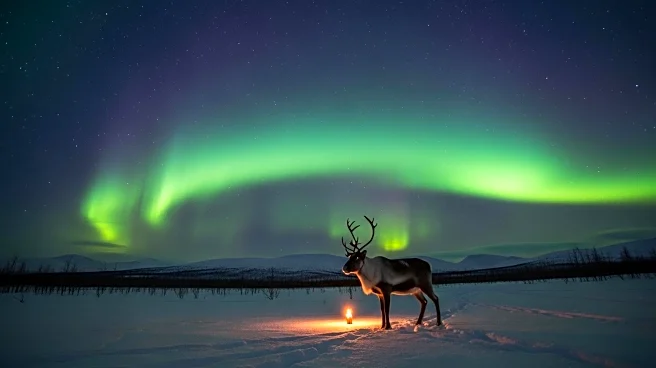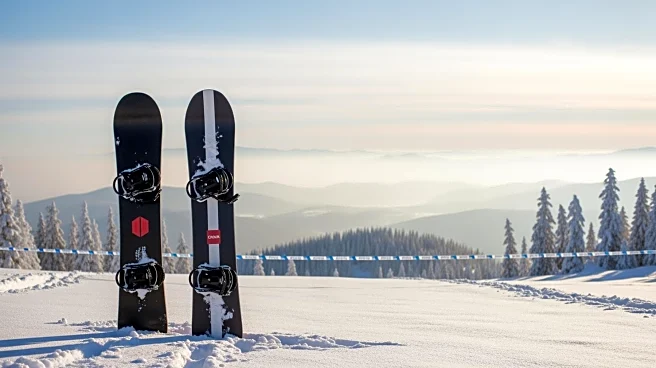What's Happening?
Sweden's plans to mine rare-earth minerals in the northern region are causing concern among Indigenous Sami reindeer herders. The proposed mine at the Per Geijer deposit, considered Europe's largest, threatens to disrupt traditional reindeer migration routes, essential for the Sami way of life. The Sami, who have relied on reindeer herding for generations, face challenges as the Arctic warms, requiring more geographic flexibility for survival. The state-owned mining company LKAB aims to reduce Europe's reliance on China for rare-earth minerals, crucial for technology and renewable energy. However, the Sami community fears the mine will cut off vital grazing routes, jeopardizing their cultural heritage and economic livelihood.
Why It's Important?
The conflict between mining interests and Indigenous rights underscores the broader challenges of balancing economic development with cultural preservation. Rare-earth minerals are vital for technological advancement and transitioning to renewable energy, but their extraction can have severe environmental and social impacts. The Sami herders' plight highlights the need for sustainable practices that respect Indigenous communities and their traditions. This situation raises ethical questions about resource exploitation and the rights of Indigenous peoples, emphasizing the importance of inclusive decision-making processes that consider long-term cultural and environmental consequences.
What's Next?
The Sami community plans to contest the mining project in court, although they face significant challenges against well-resourced mining interests. LKAB has expressed willingness to explore solutions to assist the herders, but concrete plans remain uncertain. The outcome of this dispute could set a precedent for how Indigenous rights are balanced with economic interests in resource-rich regions. As climate change continues to impact traditional reindeer husbandry, finding sustainable solutions that accommodate both environmental and cultural needs will be crucial.










